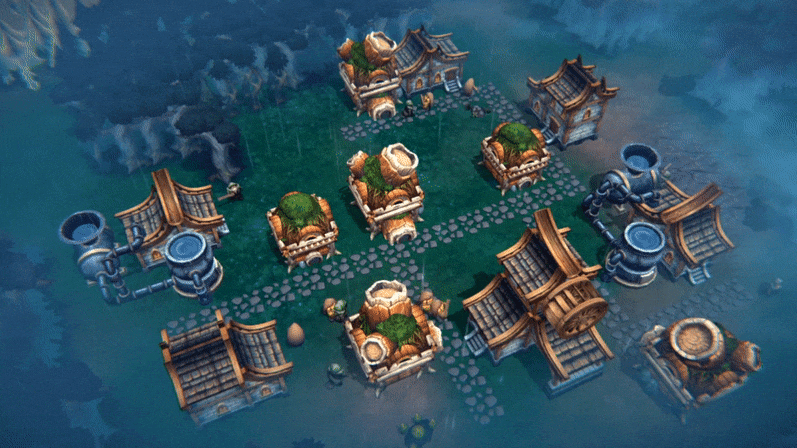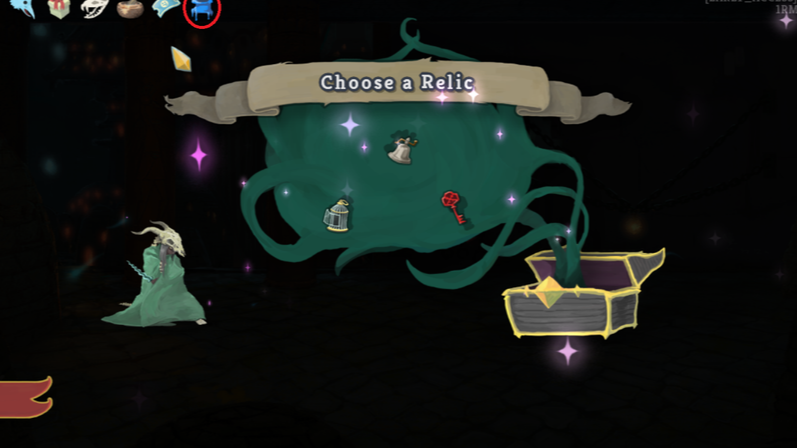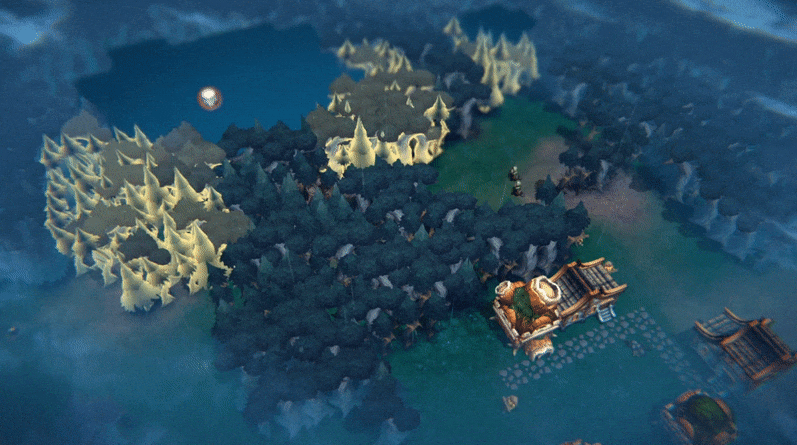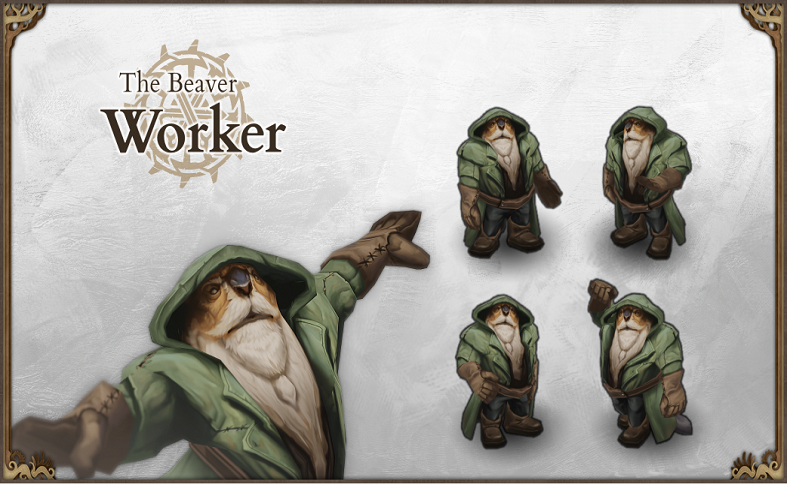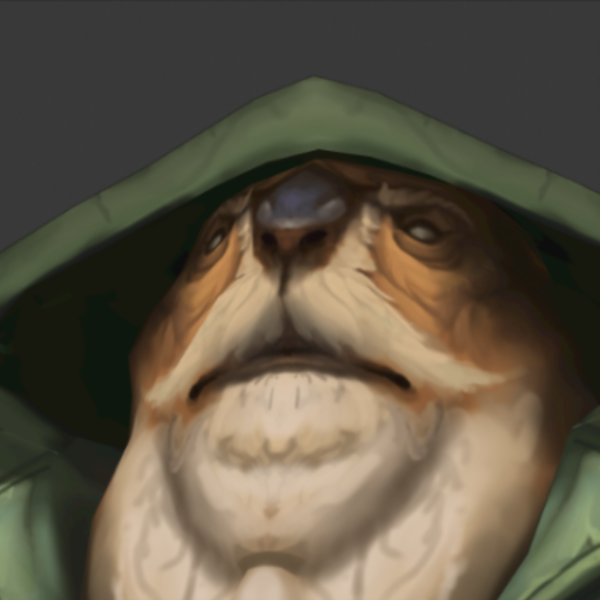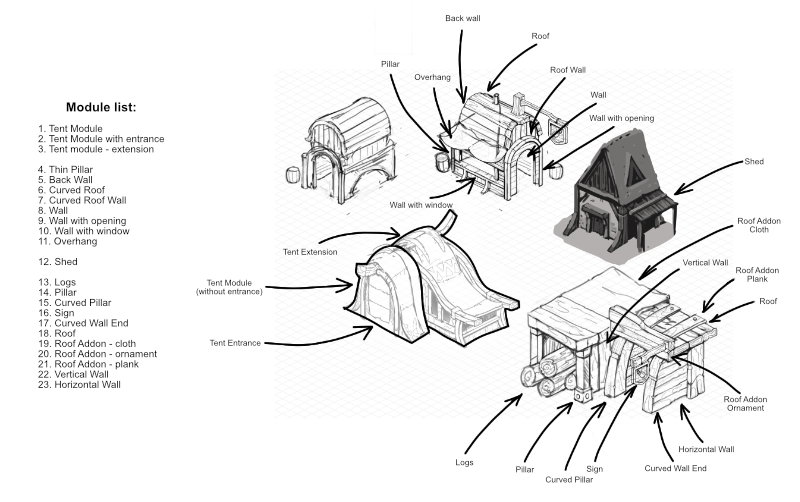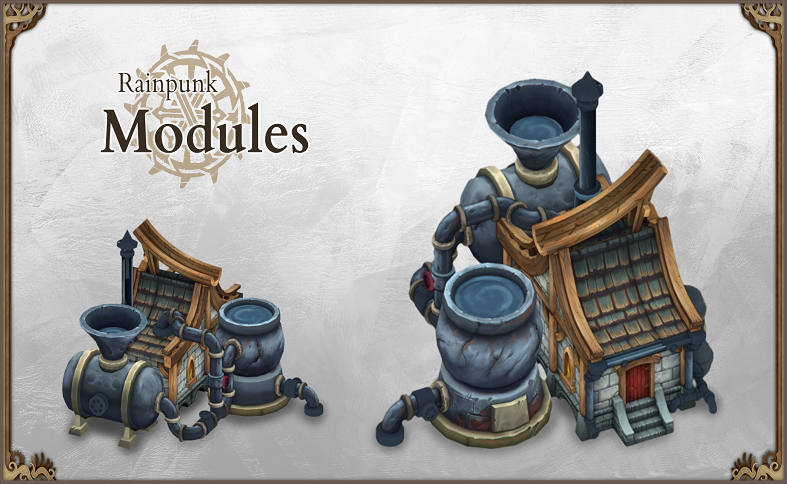Updates and Devlog
Updates Changelogs
This text is collapsible.
Devlogs
Devlog #1 – It’s alive!
Apr 28, 2021
Greetings, Citizens! We’re starting a series of development blogs to let you stay on track with the development progress and provide you with an opportunity to learn more about the game.
One of the ideas behind Against the Storm is community-driven development. We believe that a well-informed community can provide more valuable feedback and thus have a stronger impact on the development process. So without further ado, let’s take a deep dive into the last couple weeks of our work.
Dense Forest & Glades – roguelite features
We always planned Against the Storm to be 70% city builder and 30% roguelite. While the city builder part is easily distinguishable from the screenshots, the roguelite one… not necessarily.
We develop Against the Storm with three pillars in mind:
The feeling of rebuilding Becoming a part of the world Diversity of experience Although we felt that the game already delivers the first two of them, we knew it falls short on the last one. So we decided to discuss once again what we believe are the most essential roguelite features (which we believe to be an essential part of the Diversity of experience pillar), what problems we are facing in this area, and how we can resolve them.
Here’s what we found out.
Roguelite features: Plurality of choices Emergent gameplay Strategy without micromanagement Consequences of choices Emphasis on the mastery Learning from your mistakes ‘Ultimate power’ fantasy Decision trade-offs Procedural generation Exploration
Roguelite pillars: Diversity of challenges Diversity of imperfect tools to cope with the challenges Choices that permanently determine what tools are you going to use to cope with the challenges
Three deadly sins We were able to distinguish three major problems (three deadly sins) that contrasted with the previously mentioned features and pillars.
Sin I
We lack long-term challenges. With no challenges upon players, there’s no real risk and without the risk, there are no meaningful choices (e.g. which passive bonus should you invest in).
The long-term choice in Slay the Spire (source: u/MisirterE)
Sin II
We have no synergy. As a result, we also don’t have our ultimate power fantasy. You know – that one ideal run during which you performed so well you keep coming back to it in your mind and try to find a way to recreate this scenario on consecutive runs. The lack of synergy also means there can’t be any complex and diverse tactics.
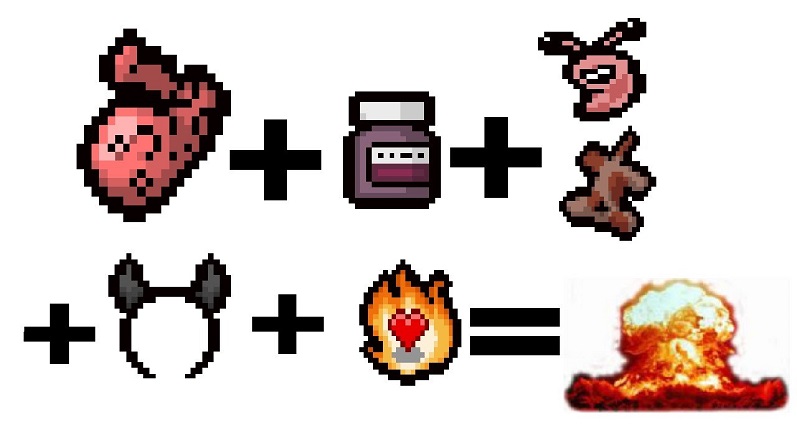
A synergy of items in The Binding of Isaac (source: BungieMuffin)
Sin III
There’s no mastery. After learning the initial rules there are no systems that allow players to learn, get to know the game, and become better.
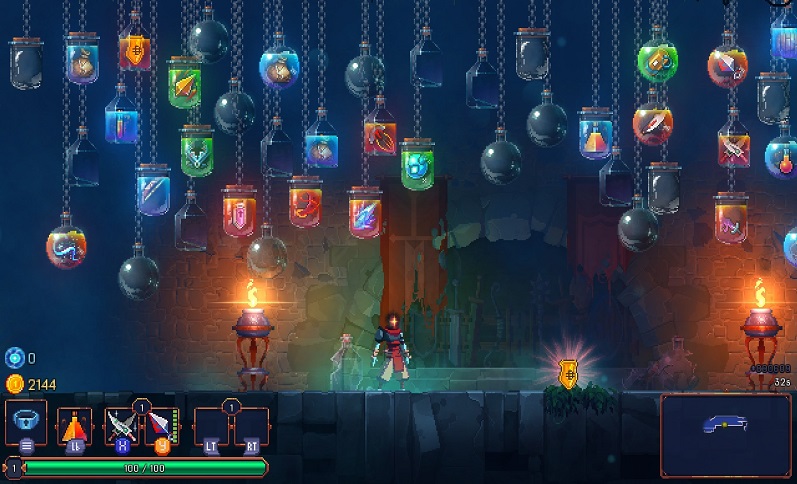
Mastery in Dead Cells (source: Rock Paper Shotgun)
Dense Forest – Overview
With that in mind, we formed a list of systems & features that could be implemented to support the Diversity of experience pillar and strengthen the roguelite aspect. One of the ideas we decided to test is the Dense Forest system, which supports exploration, perks, rewards, synergies, and mastery.
The Dense Forest system tries to address three problems:
- Game’s fantasy: the forest is not mysterious and overwhelming enough
- Gameplay: there are no systems that encourage exploration, which is an essential part of roguelites
- Gameplay: too much of the map is uncovered. As a result, the player has too much information at the beginning, which encourages to restart the game to generate better resources on the map
How it works:
The player starts the game on a glade tightly surrounded by trees. The rest of the map is covered by the fog. However, the player is still able to see the shapes of other glades in the woods. Those are the places where resources and interesting objects lie, but also the danger awaits. The initial information about the contents of the glades is scarce, but it is possible to uncover it by sending a woodcutter expedition that will cut their way to the glade. Once discovered, the glade is no longer covered by the fog. The players’ task is to assess the risk of uncovering new glades.
This system resembles dungeon exploration known from other games. You are often faced with a choice, which chamber to visit next. You might get rewarded, but you can also get into serious trouble.
The majority of fields on the map are filled with trees, which can be cut down. In the Building panel, there are two icons dedicated to selecting (and de-selecting) areas marked for deforestation. The trees will only be active if the player has built the Woodcutters Camp and assigned Worker(s) to the building. The deforestation zones are marked by clicking and dragging the LMB over the desired area. Those zones are then highlighted in every mode. Workers will start chopping down trees of the closest zone and only proceed to the next one if the first is fully cleared.Your content goes here. Edit or remove this text inline or in the module Content settings. You can also style every aspect of this content in the module Design settings and even apply custom CSS to this text in the module Advanced settings.
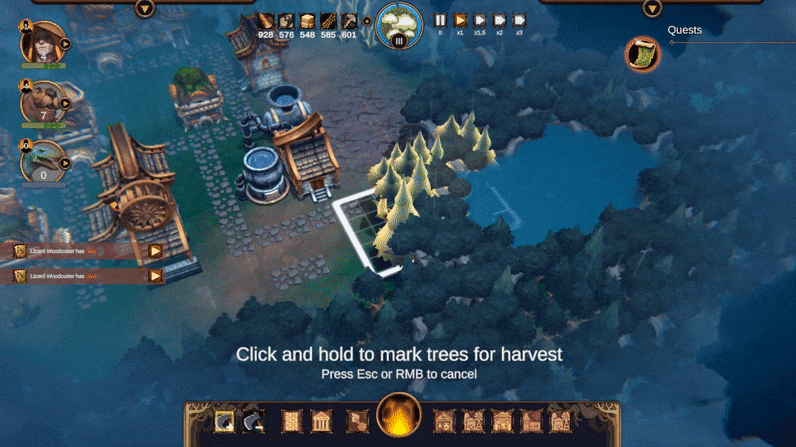
There are three types of trees, which differ in terms of the generated resources and the amount of time necessary to cut them down:
- Evergreen – medium cut-down time; medium amount of resources
- Hollow – short cut-down time; low amount of resources
- Petrified – long cut-down time; low amount of resources

Tree models (from left: Evergreen, Hollow, Petrified)
Cutting the path to a new glade is a valuable opportunity to discover a vast area for the development of the player’s colony and most likely find new resources or more valuable rewards like passive perks. There’s also a threat of coming across new dangers.
We were able to implement the basic representation of this mechanic to the game and we’re already satisfied with the results from playtests. At the same time, we’d like to ask about your impressions. Many of you were curious what’s rogueliteish about Against the Storm. So, what do you think of this mechanic? Penny for a thought!
It’s a bird… It’s a plane… It’s a Beaver!
For quite some time we’ve felt that the Beaver population was underrepresented in the game. No wonder, since they didn’t have their 3D model implemented. Duh.
So finally we’ve added the Beaver Worker model to the game along with some basic animations. You can check the animated Beaver Worker model on our SketchFab.
We wouldn’t be ourselves if we didn’t make a PS1 Hagrid meme of it. Feel free to make it your new Steam avatar.
Camps & Modules
From other news, we’ve been working on modules for some low tier buildings. Up to this point, we only had models of high-end buildings that leverage the rainpunk technology, whereas we didn’t have any in-house-made assets for buildings that are constructed early in the game. Ones that don’t impress with their high fidelity or scale, but still are the ones that players will see most often.
Hence, we’re currently working the following models:
- Lumber Camp
- Scavenger Camp
- Prospector’s Hut
- Hunters’ Lodge
- Quarry
- Simple Farm
Whenever we make new buildings, we create them from modules. It helps us significantly speed up the process. We create modules (as seen below) that allow us to duplicate them in various objects with various decorations.
Rainpunk Modules
In the meantime, we also created rainpunk modules that will be later used in various buildings that utilize rainpunk technology. What’s rainpunk you ask?
For centuries, the world of Against the Storm has been tormented by perpetual rains of extraordinary, magical properties. It can change the matter it touches and is charged with energy. Although it can be processed and utilized for noble purposes, the rain has a negative impact on all sentient races and a fair number of animals, spreading disease in their bodies.
Rainpunk term refers to a technology that utilizes magical rain.
Hello world!
The last few weeks will remain forever special for us as we finally stepped out of the shadows and announced Against the Storm to the world.
The announcement itself was one of a kind experience for us. Seeing your genuine interest in the concept and visuals of Against the Storm made our motivation and excitement skyrocket. We’d like to thank you for all your support in the form of retweets, wishlisting the game, or spreading the word about it. You’re legends!
The question we hear a lot among other developers is When is the best time to announce your game? The answer, as too often, is: It depends. It depends on the scale of the project, the quality and amount of assets at your disposal, your marketing plan, and many many more. For some, it would be as early as the first model is created, for others when the proper trailer (CGI or gameplay) is created.
For us, it was supposed to be the day when we were able to launch our Steam page (actually, that was the second idea – let us know in the comments if you want to know the other). The game’s Steam page is the ultimate place where we want to drive players. Every Steam wishlist counts and helps us get more visibility on the platform and attract new members to our community.
So we focused our efforts on creating essential in-game assets that would best capture the idea of the game: fantasy races, buildings that could only have a purpose in the world where it constantly rains, etc. But then, we managed to attract the editors of CD-Action with the overview and gameplay of the game (with some placeholders, but they are acceptable at this point). CD-Action is the largest Polish print magazine about games.
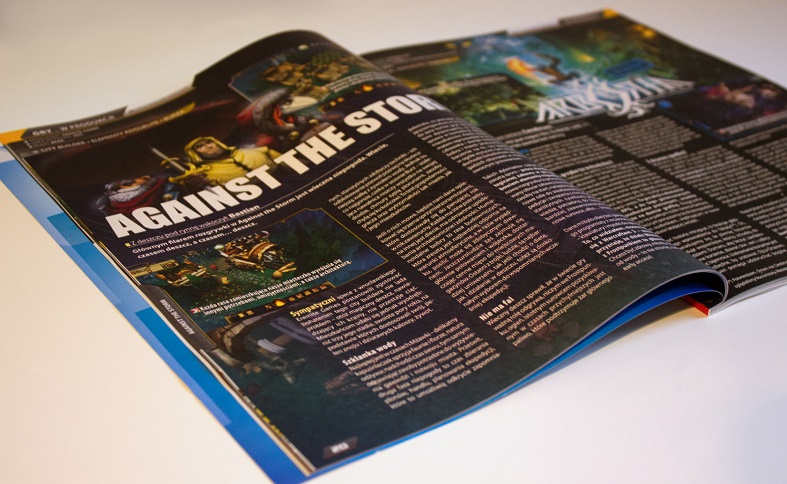
It was one a kind opportunity for us, so we shifted all our efforts towards creating the best texts and screenshots that we could provide them. Sidenote: we didn’t play with screenshots in any graphic editors. What you see is taken directly from the game.
At the same time, we started the process of setting up the Steam page. Piece of advice for other indie developers: have your Steamworks account created as early as possible. You will learn what assets are necessary to launch your store page and how long the procedures take. We have some experience in launching Steam pages, but nevertheless we barely made it on time. Save yourself some unnecessary stress.
In the end, we managed to set up all the pages we wanted on time. We’re on Steam, Game Jolt, IndieDB, Reddit, Facebook, Twitter, and more. That’s a lot of graphics to prepare, so we’re sharing with you our list of images and sizes that will help you prepare for launching your pages in advance:
List of marketing assets and sizes (Steam, Game Jolt, IndieDB, and more!)
We appeared in CD-Action (dreams come true!) and connected it with the global press outreach. We got some coverage on pages like Tech Raptor, OffGamers, Blue’sNews, MMOinGame, Nano Gaming News, and more. We even made it to the front page of IndieDB, so once again thank you for your interest that allowed us to reach such a high spot.
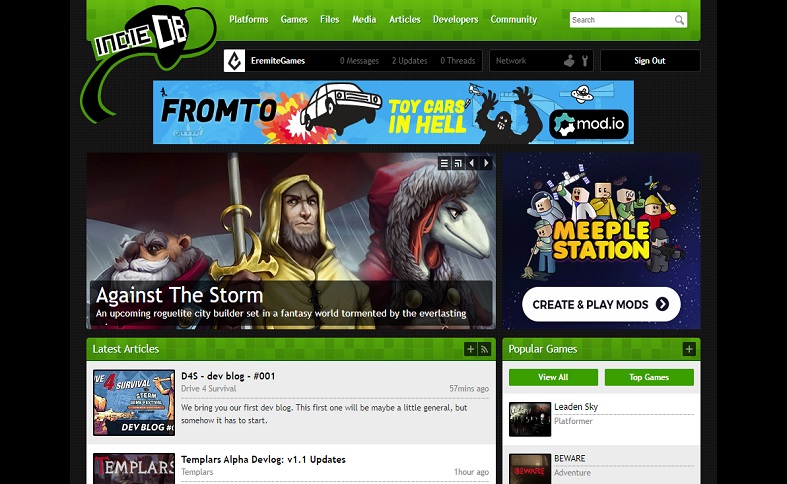
Your turn! What would you like to see covered in future devlogs? We’re eager to share more news about the game or provide you with useful tips on game development and marketing. Let us know in the comments! This text is collapsible.
 Hooded Horse Wikis
Hooded Horse Wikis